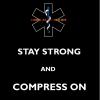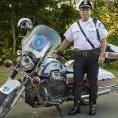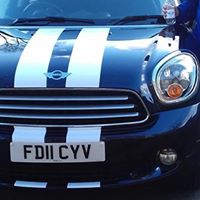Leaderboard
Popular Content
Showing content with the highest reputation on 12/30/2009 in all areas
-
http://www.nbc-2.com/Global/story.asp?S=11743716 Watch the video that goes with it too..... What do you all think?2 points
-
I personally have never liked wearing a watch. It doesn't seem to matter what type of band I've tried, they irritate my skin and me in general. A good solution that I love is the caribiner (sp?) watches. My wife bought me one from Dakota last Christmas and I've worn it every day since then. They are very well made and extremely reasonable. They make more than just the caribiner watches. http://www.dakotawatchco.com/ Also, even though I haven't personally tried it, the Dakota Versa Pack (https://dakota.webfeatsecurity.com/chosenwatch.aspx?ProdID=325) may work well for some.2 points
-
The EMT-B is barely a good start in medicine. Take a few college level A&P classes and work a BLS transport truck until you can get into Paramedic school. You will have your own private lab with live patients to learn assessments, communication skills and read the charts where you will see disease names and meds that you will not get to in a 911 service. You will be way ahead of most Paramedics who ignored these opportunities when they were working BLS transfer because they just wanted the "action". The dialysis patient is probably one of the sickest patients you can have daily on your truck and yet, so few even take the time to know why the patient is on dialysis except for "renal failure". The acute rehab patients your transfer for advance physical therapy may have been some Paramedic's save from a trauma, CVA or cardiac arrests. They deserve someone who is attentive and they are probably over being the center of some EMT's "excitement". You might also see what happens to spinal cord injuries and learn how these are stabilized once they reach the hospital. You might also see how hospitals document how a patient is presented to them from the EMT(P)s especially for spinal and head traumas. That can help you later when you start doing 911 calls and will be giving report to the ED staff. They do take notes on everything even if they appear not to be paying attention. It would also be interesting just to read the extent of their injuries and see how they have progressed. It can be a big motivator for you to continue your education to learn how to better serve these patients or the ones you will see in the future as fresh traumas or cardiac arrests. Take advantage of asking questions of other health care professionals when you do transport patients in a more controlled environment. Network and you might be surprised at the opportunities that come your way. If you don't make good use of the opportuniites given to you on a BLS truck, don't get your expectations up to high when you get on an ALS truck. And again, never forget that the BLS or "BS" transfer patient or the dialysis patient could have been another EMT(P)'s save. Treat them with respect. They've got a lot to offer for anyone who is interested in "medicine".2 points
-
It's taken about 1500 calls in a year and a half for me to figure out that this 911 paramedic stuff AS CURRENTLY DONE is not rocket science. It's great to understand the physiology of what is going on, but most of the time, on a call, what I am required to do is pretty limited. I try and go above and beyond, figuring out what is really going on with the patient vis-a-vis physiologically, socially, economically, psychologically etc. Is any of that necessary? Not really. There are hundreds of eager young things in the pipeline that want to go tube somebody. I am interchangeable with any one of them. I want to use my brain and knowledge to really make a difference, in a position where what I have to offer is necessary and required. I really like the idea of community based prevention and the opportunity to provide some answers to the situation as it stands. Let fire do the EMS thing - let those of us that want to do more find ways to do it.1 point
-
I personally feel there is a time and place for lasix. I disagree with the complete removal of it. Why in EMS do we do everything based on tradition and if we make a change instead of just changing guidelines we go to the other extreme?1 point
-
My def of amb ass is: When your assigned to the worst car in the fleet with vinyl seats on a hot humid day hungover from the night before of cheap chili, wings and schaffer beer. Its that sweaty feeling you get and wonder if that was a fart or did you just shart. lolol1 point
-
I had to take a good hard look at myself and discover that I do infact eat mostly out of boredom and as an emotional crutch. Re-wiring my brain, and attempting to replace good habbits with bad is proving to be harder then I thought. Its one of those things that seems so 'simple', and you start out well. Only to notice that you crept right back into all the bad as before. Baby steps. And thats why I gave myself so much time, that way I dont set myself up to fail in a short amount of time. Im getting a Wii in a few weeks. Complete with all the Wii fitness packs. Im so stoked. I joined a gym, but, ughh its just not me. And I get these weird energy ball moments, but, due to the kids, I cant just take off. Its a good start anyhow. I know I will have to get to a point where I need to go back into the gym to work with someone. However, untill then, I can work out in my jammies, or really, just at anytime!!1 point
-
While you will not find "Ambulance Ass" in any dictionary or medical journal, I can assure you it's a true phenomena. It usually is associated with the lazy provider that sits in front of the TV watching the "price is right" waiting for the next call, while trying to accomplish a new world record for the most Cheeto's placed in one's mouth at one sitting. True, we do eat at weird times but does not always have to be fast food, which we all know is not the best thing we should be eating, but is usually the fare of the day due to convenience. I like a good ol' greasy cheeseburger as much as the next guy, but I do try and limit the number of times I have one. It is better to use your downtime at the station for studying or exercising. We have a complete set of weights and a Bowflex at the station I work at. I realise all services don't have these, but equipment is not always required. There are some excellent programs for exercise that do not require weights at all and are based more on resistance training. Try to watch what you eat. Prepare your meals at home and bring them with you. Snack on vegetables and fruit instead of Cheeto's and Frito's. I guess it all comes down to the individual. You have already established a goal to lose weight and I applaud you for it! Don't waste that when you get a job by becoming "Ambulance Ass"1 point
-
Maybe off topic, but not really. Going back 30 years, to the popular EMS-related series, Emergency!. You never seen them give oxygen, unless the victim was in need of resuscitation. It was very rare to see oxygen being given, as "supplemental" oxygen. I thought of this from an episode in Season 6, where they're on vacation, in a private ambulance. One victim has head injuries, the other, internal bleeding. The only visible equipment, are two "E" cylinders w/ regulators directly beside them. That just crossed my mind when I seen recent comments on this thread.1 point
-
As far as the experience portion: It seems to work well on near syncope, positive orthostatic, weak/dizzy patients very well (depending on cause, of course). That's patient experience. For personal experience, I woke up from a shift extremely sick once, was dehydrated, and had sudden sweating, skin felt cool, (I'm sure I was pale), and head not quite hurt, but felt like worst hang over ever. I literally crawled to an O2 tank in supply room and received very quick relief from an NRB. It felt like life coming out of that thing. Felt so good to take those deep breaths of O2. After the episode itself passed I was fine.1 point
-
Oh trust me, it's been addressed plenty by the Republicans. The Democrats, however, will have nothing to do with fixing it. I'll sum it up in two words: Bloodsucking Lawyers1 point
-
1 point
-
As we all know-not exactly news. We've been down this road many times and this horse has been beaten to a bloody pulp, but... The question I don't recall anyone really addressing is: Why has it gotten to the point where people can (ab)use the system in this way? We can talk all day about how we can assist with social service interventions, how expensive health care has become, how some people need a safety net, and now Health Care Reform is supposed to solve all our problems, but I think this is a chicken and the egg thing. When did people decide that an emergency service is appropriate for things like ankle pain, or a sore throat? WHat did people do before EMS was instituted or became so accessible for so many people? Depending on where I am, I still encounter people who simply cannot fathom using EMS for anything. They even apologize for calling for nonemergent things like CHF and MI's. I don't think that even the best reform bill can address the reasons why so many people have become completely incapable of taking care of themselves. I think that over the last couple generations, we have become far less self sufficient in so many areas of our lives. I'm thinking this is not necessarily a good thing. The government has become the great benefactor for so many people, for so long, that they have forgotten how to forge their own path in life. Just musing...1 point
-
VentMedic is right on and pretty much just said eveything I was going to say so read his post...twice! Even if you are in an area where Basics have the opportunity to go straight to 911 or Rescue, the amount of experience, education, and knowledge you can eke out of stable and/or routine transports (such as dialysis and interfacility transfers) is unrivaled, even by slinging the many nauseous, overdosed, or seizing 911 patients around the back of your ambulance. Always, always use your resources and for BLS transport work that includes talking to your patients, reading their paperwork and charts, asking the nurses and doctors questions about medicine, prognosis, treatments, diagnosis etc. It will not only prepare you to be a better provider, but will also give you more time to concentrate on the different mindsets, approaches, and multi-tasking that 911 calls demand of you. Your career as a pre-hospital provider is largely what you make it, so make yourself proficient in all areas of pre-hospital care! And for the Love of All Things Sacred, keep them hands CLEAN!!!!!! (EMT-B rule #1: your safety-B.S.I., baby!)1 point
-
You will be at least TWICE as good an EMT with A&P ahead of time as you would have been without it. AT LEAST TWICE as good! You do not get the same exponential benefit by taking it after the fact. Taking an EMT course without the basics first is like building a house without pouring the foundation first. Even if you go back and do it later, it is never as good as if you had done it right the first time.1 point
-
Report the post you want deleted and give an explination why and it will be removed by a moderator. Also, this is my watch. Not actual picture because my camera is broke, but looks just like it.1 point
-
Vent, I was not insinuating that a paramedic will spend hours with a patient, just merely pointing out that including " 15 min" in your entire statement seems a bit presumptuous. Just saying..... Yes, I remember those conversations very well, I am hoping to get enough time back in my schedule soon to start having those in depth discussions once again. I have just a couple classes left for my MHA, and then I am DONE with school! :-) I really do enjoy reading your posts, always very educational and well written. I just always like to play devil's advocate when needed ;-) Hope your well, and Happy Holidays! JW Hells, Agreed, and I never stated I would NOT give O2, I was simply trying to get people to think about the " WHY " you do things in practice.....I see so many people who can only do If A, Do B, and have NO clue about why! Respectfully, JW1 point
-
There is no doubt the underlying issue needs to be fixed. The same can be said for almost any pt we transport with oxygen; 02 is not going to fix the underlying problem in an MI, GI bleed, or hypovolemic trauma pt either. Yet, it is still good practice to provide oxygen to these pts1 point
-
The whole sentence is: Also, many of the studies were done on long term effects and not for the 15 minutes an EMT(P) are with a patient. It is rare that a Paramedic will spend many hours with a patient and if they do they will or should have advanced protocols/equipment to deal with those situations. For Specialty, Flight and CCCT we will have several pressors, advanced ventilators, Nitric Oxide, Flolan or something similar and in some areas heliox might be available although the tank will not last very long. Each of these therapies may enable us to reduce the FiO2 as the situation allows. Again, a few situations will require us to remain at an FiO2 of 1.0. However, thanks for the compliment on my post. I remember back 2 -3 years ago when you and I used to have indepth conversations on another forum about these topics.1 point
-
Hmm, I am not sure I would put a hard time requirement on how long I spend in somebodies airway. This will vary greatly from patient to patient. Do you remember your OR rotation? A healthy and properly preoxygenated patient can go several minutes before they desaturate. Again, this will decrease with illness, obesity, and age extremes. If I have a well oxygenated patient with a good LEMON assessment and all of my equipment ready to go, I am going to slow down a bit. If we pull out of an airway every 30 seconds, we will create a failed airway situation when one does not exist. Most people say 3 attempts and you are through. Why not take a little extra time to position, do a little ELM, and perhaps suction. Then, make every attempt my best attempt. I never bought into the whole hold our breath thing. This IMHO creates undo stress and distracts you from the task at hand. Have somebody watch your saturations, vital signs, and the patients overall condition while you are in the airway. Let the patient's condition decide when you need to stop and bag them up, not the fact that you are out of breath. Take care, chbare.1 point
-
I suppose that term can me taken quite a few different ways0 points
-
Timmy, Please Let me Clarify for you... I was not talking about you wanting to know the child's O2 SATuration Level... I was talking about one of my pet peeves... Every time you say O2 STAT you sound like a moron! ITS SAT short for SATURATION... get it? ~street0 points
-
This seems quite interesting... My question of course is how well will this actually work... and what is the data that is used is it just location of calls from the past 4 years or does it take into account weather and other outside information? If this works like they seem to think it will I think we might be looking at a pretty useful tool!-1 points










